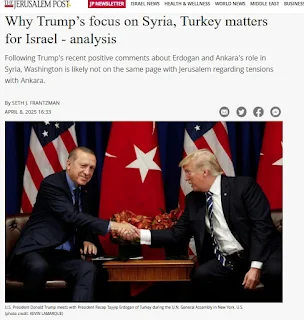
China’s Rising Role in the Middle East: Mediator, Partner, and Power Broker
In a region long dominated by U.S. influence and rife with geopolitical rivalries, China is steadily emerging as a pivotal diplomatic actor in the Middle East. The most striking evidence of this shift came in early 2023, when Beijing brokered a historic rapprochement between longtime adversaries Saudi Arabia and Iran—a move that not only stunned global observers but also signaled a new phase of Chinese engagement in West Asia. Now, more than two years later, the momentum of that breakthrough continues, with China deepening its strategic partnerships and expanding its footprint across the region.
The agreement between Riyadh and Tehran, facilitated by Chinese mediation and signed in Beijing in March 2023, marked a turning point in Middle Eastern geopolitics. For decades, the Sunni-Shia divide and proxy conflicts had fueled instability from Yemen to Syria, with Washington often taking sides or struggling to contain the fallout. China, by contrast, offered a neutral platform that prioritized dialogue over confrontation.Recent developments confirm that this truce is not merely symbolic. On December 15, 2025, Chinese Foreign Minister Wang Yi concluded high-level talks in Riyadh, where he affirmed China’s commitment to being Saudi Arabia’s “most trustworthy and dependable partner.” Crown Prince Mohammed bin Salman (MbS) echoed this sentiment, pledging to deepen cooperation in energy, artificial intelligence, and emerging technologies—sectors central to Saudi Arabia’s Vision 2030 economic transformation.
Crucially, both Saudi Arabia and Iran have continued to engage in direct dialogue since the Beijing-brokered deal, with trilateral meetings involving Chinese officials now becoming routine. A recent gathering of deputy foreign ministers from China, Iran, and Saudi Arabia in Tehran reaffirmed the three nations’ commitment to advancing bilateral relations between Riyadh and Tehran “in all fields” and hailed the “continuous progress” in their reconciliation.
China’s influence is not just diplomatic—it is increasingly economic and technological. As the world’s largest oil importer, China has long maintained strong energy ties with Gulf states. But Beijing is now moving beyond buyer-seller dynamics to become a strategic partner in Saudi Arabia’s national development goals.
During his Riyadh visit, Wang Yi emphasized expanding cooperation in “new energy,” AI, and high-tech industries—areas where China holds competitive advantages. Riyadh, for its part, expressed support for concluding a long-pending free trade agreement between China and the Gulf Cooperation Council (GCC), which would integrate the Chinese economy more deeply into the region’s commercial architecture.
Simultaneously, China’s stance on core regional issues—particularly the Palestinian question—resonates with Arab publics and governments alike. Both China and Saudi Arabia reiterated their support for a two-state solution based on the 1967 borders, with East Jerusalem as the Palestinian capital, aligning with the Arab Peace Initiative and UN resolutions. This positions Beijing as a more sympathetic voice than Western powers, whose policies are often viewed as unbalanced.
Unlike traditional great powers, China has avoided military entanglements in the Middle East, focusing instead on economic statecraft, infrastructure investment (under the Belt and Road Initiative), and “non-interference” in domestic affairs—a principle that appeals to sovereign-minded regimes in both Riyadh and Tehran.
Beijing’s approach also carries symbolic weight. Saudi Arabia’s reaffirmation of the one-China principle—recognizing Taiwan as part of China—during Wang’s visit underscores the mutual political support that underpins this new partnership. In return, China champions Saudi leadership in regional security and backs its diplomatic outreach to Iran.
This mutual reinforcement extends to multilateral forums. Riyadh has voiced strong support for China’s plan to host the second China–Arab States Summit and the second China–GCC Summit in 2026—events that will likely showcase Beijing’s expanding role as a convener and agenda-setter in West Asia.
China’s growing clout does not come without complications. The U.S. remains the dominant security provider in the Gulf, and Washington views Beijing’s advances with growing concern. Moreover, while the Saudi-Iran détente has reduced tensions, underlying ideological and strategic differences persist, and flare-ups in places like Yemen or Lebanon could still test the durability of the rapprochement.
Nonetheless, China’s success in facilitating dialogue between bitter rivals—and sustaining that dialogue through consistent engagement—has earned it a unique form of soft power in the region. By offering an alternative to Western-dominated security frameworks and promoting economic development without political strings, Beijing is reshaping the Middle East’s diplomatic landscape.
As Foreign Minister Wang Yi’s recent visit demonstrates, China is no longer just a passive observer in West Asia. It is an active mediator, a trusted partner, and an increasingly indispensable player in the quest for regional stability. In doing so, it has not only advanced its own strategic interests but also redefined what great-power diplomacy looks like in the 21st century.









































































